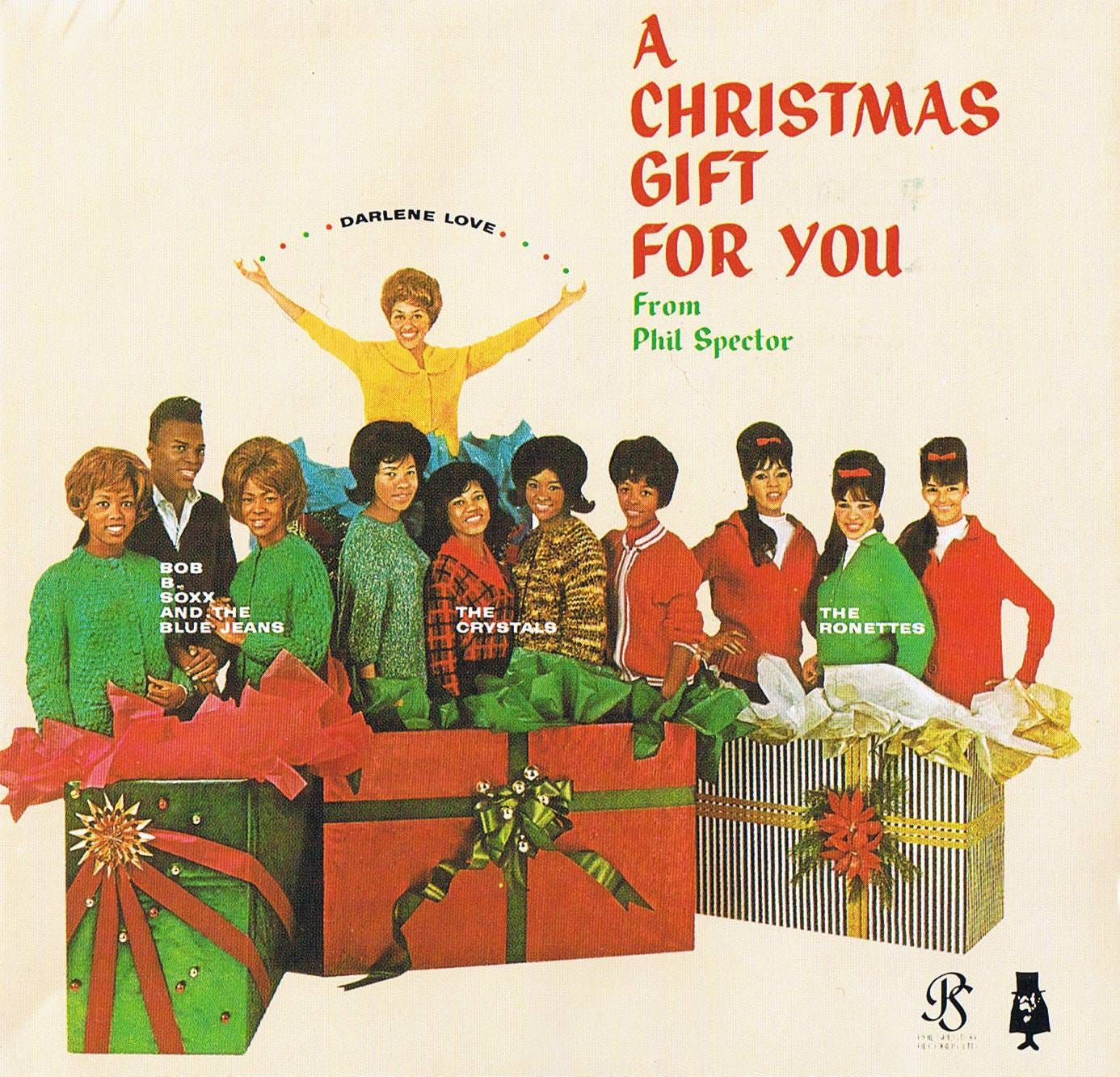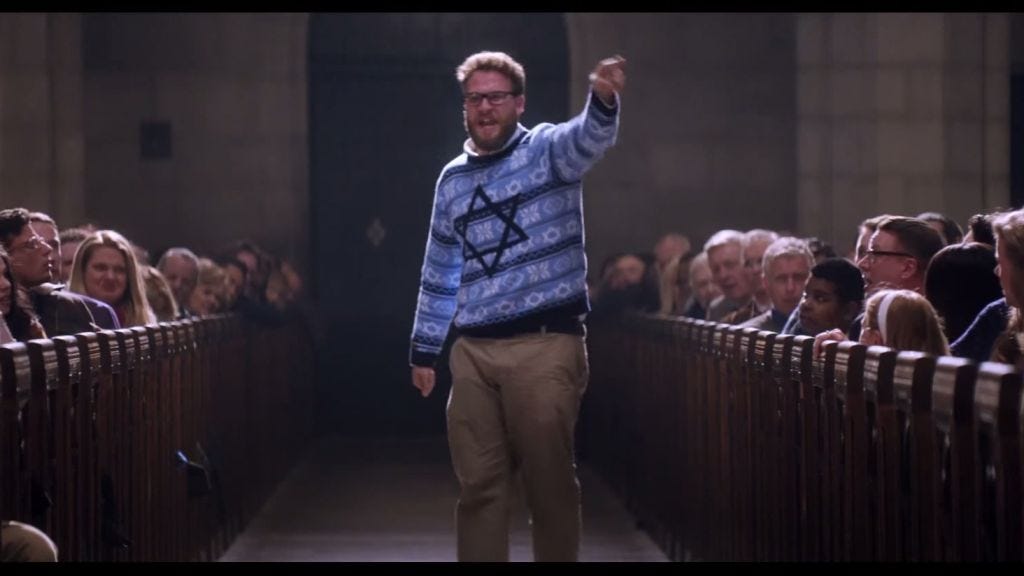The De-Christianization of Christmas Music
The invisible secularization of Christmas by Jewish broadway composers
The Nativity season is the time to reflect upon the incarnation—the moment that God entered His creation through the womb of the Theotokos and in the person of Jesus Christ. This virgin birth split human history in half. The incarnation was immediately met with the Slaughter of the Innocents and followed by literally all hell breaking loose with Satan and his demons coming out in full force. It’s no wonder the yearly commemoration of this event makes the demons absolutely seethe still to this day.
So how does the devil take the focus off Christ miraculously entering his creation to redeem humanity? By secularizing it with what I can only attribute to the great replacement of Christmas.
The music of the Christmas season is perhaps one of the most defining characteristics of the holiday itself. So “noticing” that something was off about it, led me down a rabbit hole to the point where I’m now too redpilled to enjoy any modern Christmas music without feeling like I’m being psyopped. It certainly makes me one of those “you must be fun at Christmas parties” types who becomes a scrooge while normies are rockin’ around the Christmas tree.
I started to realize that even some of these more innocent and wholesome songs have a strange subversive tone to them, whether intentional or not. These songs replaced the incarnation of the Lord Jesus Christ in Bethlehem (where it barely ever snows) with a new mythos about snow, being home for the “holidays”, reindeer, trees and cold weather—all seamlessly blended in with songs about romance, kissing under the mistletoe and women seducing Santa.
Now just for the record, I used to love these songs. They have this embedded nostalgia even after hearing them hundreds of times, there’s such a charming and festive feel to them. So how did it all get ruined for me, you ask.
A couple years ago, I watched a 2013 documentary called “Broadway Musicals: A Jewish Legacy" where popular Jewish musical composers described the history and impact of Jewish immigrant songwriters on Broadway, which for the first 50-year period of its development, its songs were created almost exclusively by Jews. The documentary has music educators, composers, journalists and comedians all consistently describing a “cheeky Jewishness” to these songs, which all start to sound very similar as you analyze the composition. They have that same show tune sound with the broadway theatrics, hypnotic hooks, clever wordplay, and plenty of chutzpah.
Here are some broadway composers from the documentary explaining the “Jewishness” of these songs and explaining the chutzpah they use in plays like Gershwin’s Porgy and Bess, where black performers are musically “debunking the Bible” with lyrics that were lifted from the Jewish temple liturgy.
There is a whole Jewish style of musical composition that is distinctly Yiddish and employs a lot of flat, minor notes, literally known as “Jew notes”. Western music theory calls it “Phrygian Dominant,”or “Harmonic Minor Mode 5”. This pattern is most famously heard in Hava Nagila, but it can also be heard in many of the modern Christmas classics.
Irving Berlin was a highly influential Russian Jewish immigrant composer and Freemason who adapted to early 20th century American culture so well that he wrote the most popular Christmas song of all time, “White Christmas”, as well as the most popular Easter song “Easter Parade”.
Berlin also wrote "God Bless America" in 1918, which became such a well-loved conservative anthem that it nearly replaced the national anthem. But it was also met with protest from several Christian groups once the song had reached mainstream success because they found out it was written by a Jewish immigrant.
The all too familiar commercialization of Christmas began to really take hold in the 1930’s when Coca-Cola commissioned Haddon Sundblom to create their famous Santa Claus marketing campaign.
In the same decade, the musical secularization began more notably when Robert May, an American Jewish composer, was commissioned by the J.P. Morgan owned Montgomery Ward Co for a Christmas coloring book where he created Rudolph.
“Rudolph the Red Nosed Reindeer is the most Jewish Christmas song of all because Robert May based the story of Rudolph, with his nose so bright…who all the other reindeer use to laugh and call him names…he based that on his own childhood as a Jew.” —Robert Harris
As if it were an inside job, May’s parents were members of a humanist organization called The Ethical Culture Society which aimed to "disentangle moral ideas from religious doctrines, metaphysical systems, and ethical theories, and to make them an independent force in personal life and social relations."1
One of May’s sisters was the grandmother of Steven Levitt, the economist who wrote the book Freakonomics. His other sister married Jewish songwriter Johnny Marks who wrote "Rockin' Around the Christmas Tree" (a hit for Brenda Lee), "A Holly Jolly Christmas" (recorded by the Quinto Sisters and later by Burl Ives), "Silver and Gold" (for Burl Ives), and "I Heard the Bells on Christmas Day" (introduced by Bing Crosby).
Come the 1960’s, one of the most innovative music producers of all time, convicted killer Phil Spector, produced one of the most acclaimed Christmas albums of all time, popularizing adult themes like mommy kissing Santa Clause featuring his manufactured doo-wop girl groups and had the chutzpah to call it “A Christmas Gift For You”. The album still to this day enters the top 10 charts in December. Thanks Phil!
But we must never take the blackpill during the most joyous time of the year. If you’re not totally distracted by mistletoe, Santa and snowmen, being blackpilled will also suffice for the enemy. So the way I see it, there’s only one option. Christ is Born. We must glorify Him.
Maybe next year, I will cover the secularization of Christmas movies.
Thanks for reading, friends.
Merry Christmas
Christ is King
Colin Campbell. 1971. Towards a Sociology of Irreligion. London: MacMillan Press.





